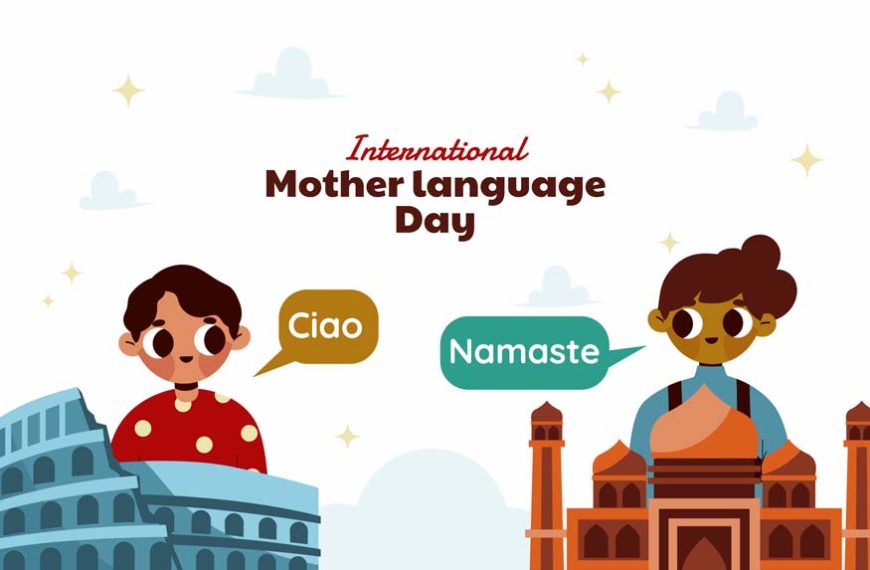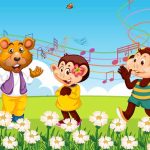As the world comes together with international travel and technology overall, we have found that the diversity in the world is impeccable, especially when it comes to how we communicate verbally. Although some languages may have taken the world stage, our local languages play a strong role in what shapes us. Language is an extremely powerful tool that shapes our way of thinking, forms how we perceive the world and truly protects our cultural heritage. We live in a rapidly changing world and to preserve the linguistic diversity that exists, the international community came together to form what is now known as International Mother Language Day (IMLD). This important day is celebrated annually on February 21st and is a true testament to the importance of linguistic rights, cultural identity, and the role languages play in spreading appreciation and cooperation among people around the world.
What is the Historical Background of International Mother Language Day?
Although many may not know about the existence of this day, we all are a part of it with its being traced back to a tragic event in the history of Bangladesh – The Bengali Language Movement of 1952. During the partition of British India in 1947, East Pakistan (now Bangladesh) and West Pakistan (present-day Pakistan) established themselves as two separate entities. However, there are language and cultural differences based on their geography alone.
The government of Pakistan tried to impose Urdu as the only official language in 1952 with disregard for the diversity that exists within the country. This government decision sparked a lot of animosity among the Bengali speakers in East Pakistan and the Urdu speakers in West Pakistan. Protests and demonstrations started to begin. These were being led by many students and activists who wanted to protect the right to use the Bengali language which was common to many and truly is a symbol of any group’s cultural heritage. Unfortunately, the movement reached a tragic stop on the 21st of February, 1952, when local police openly fired on a peaceful demonstration which resulted in many protestors dying protecting their own heritage.
This sacrifice of those who lost their lives protecting their mother language and their heritage on that day has become an important symbol of linguistic rights and cultural identity. The United Nations Educational, Scientific and Cultural Organization (UNESCO) recognized this day and declared the 21st of February 1952 as International Mother Language Day in the year 1999, to foster and promote linguistic and cultural preservation that supports diversity and cooperation for the use of one’s mother languages regardless of what may be considered an official language.
What is the Purpose of International Mother Language Day?
Did you know that every two weeks a language is going extinct? Many have said that our language truly determines how we see the world. We all know that our language and the way we communicate in our communities have significance because it is a huge part of what defines us and makes us. The purpose of this day beyond the recognition of those who sacrificed their lives is to be inclusive of everyone’s heritage. This diversity really needs to be protected and we must be mindful of how we preserve and transmit knowledge. This day truly serves as a reminder of the importance of language in shaping our identity, fostering social communities, and promoting inclusivity. By celebrating language diversity, the international community has aimed to highlight the richness each culture has provided to this global world today. It is important that we allow these languages to continue growing sustainably and build peace-building initiatives through them.
Moreover, International Mother Language Day also enhances the need to protect one’s rights, our language and how we communicate cannot be eliminated due to the law. Language is not just a way for individuals to communicate but also is a basic human right. We must celebrate this day and provide education in as many languages as possible to remain inclusive of all people and allow it to be a part of public life.
What are some celebrations and activities surrounding this day?
There are many events and activities that promote linguistic diversity and cultural understanding around the world. Schools, educational institutions, cultural organisations, and communities organise various seminars, conferences, and cultural programs to highlight the importance of preserving our mother tongue. These events often include information sessions, coffee houses with poetry reading, language exhibitions and storytelling sessions for various age groups. One key aspect of all activities is to simply celebrate and promote multilingualism in education. The more one can emphasise the importance of mother languages in the early years of education, the more we contribute towards the cognitive growth of an individual and their overall success. Can you imagine needing to study about the world in a language that is not your own? You perceive that information very differently therefore forming your ideas differently. We must be more inclusive in providing education in various languages. We should encourage students to express themselves in their mother tongue and not punish or scrutinise any group for practising their culture.
Governments and non-governmental organisations around the world also use this day to launch different programs to promote languages that may be endangered. Can you think of a language in your area that is not as prevalent today as it was a few years ago? Using this day to raise awareness about these languages is what this day is truly all about and you can certainly create activities to participate in your own way.
How is Language linked to our Cultural Identity?
An individual’s language really does create their cultural identity. It also shapes the way we perceive ourselves and our community. Ever wonder why there is no direct way to translate a phrase? It’s because an individual language may be able to describe a moment or a feeling that another language cannot duplicate. This is why we must preserve and allow individual languages to thrive. International Mother Language Day recognizes the need to build inclusive societies where people from different language backgrounds can coexist in harmony. The celebration of all languages recognizes that any language is not just a tool for communication but a reflection of one’s history and values.
What are Some Challenges and Opportunities We Face Today?
Despite the global recognition of linguistic diversity, many languages are still at risk of disappearing. The rapid spread of dominant languages and the influence of mass media pose challenges to the survival of lesser-known languages. Globalisation and economic factors also play a role, as speakers of smaller languages may face disadvantages in education and employment opportunities. However, it also presents an opportunity to address these challenges. It can serve as a platform for more dialogue on language policies, education reform, and the integration of multilingualism into society. We can all use this day as a catalyst for developing and implementing policies that promote language diversity and the protection of minority languages.
International Mother Language Day is an annual reminder of the sacrifices a group of people made in defence of linguistic rights and to preserve their culture. It celebrates the beauty of our diversity and reminds us of the important role language plays in shaping our ideas and the world around us. We hope this information serves as a tool for you to appreciate other languages more and teaches future generations the importance of preserving history and culture through all means. As we continue to become more interconnected, may our diversity continue to unite us more and promote awareness around our individual languages. EuroKids offers you more information on the significance of International Mother Language Day.
















